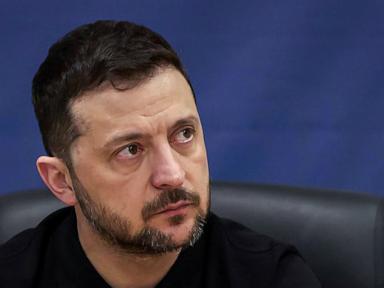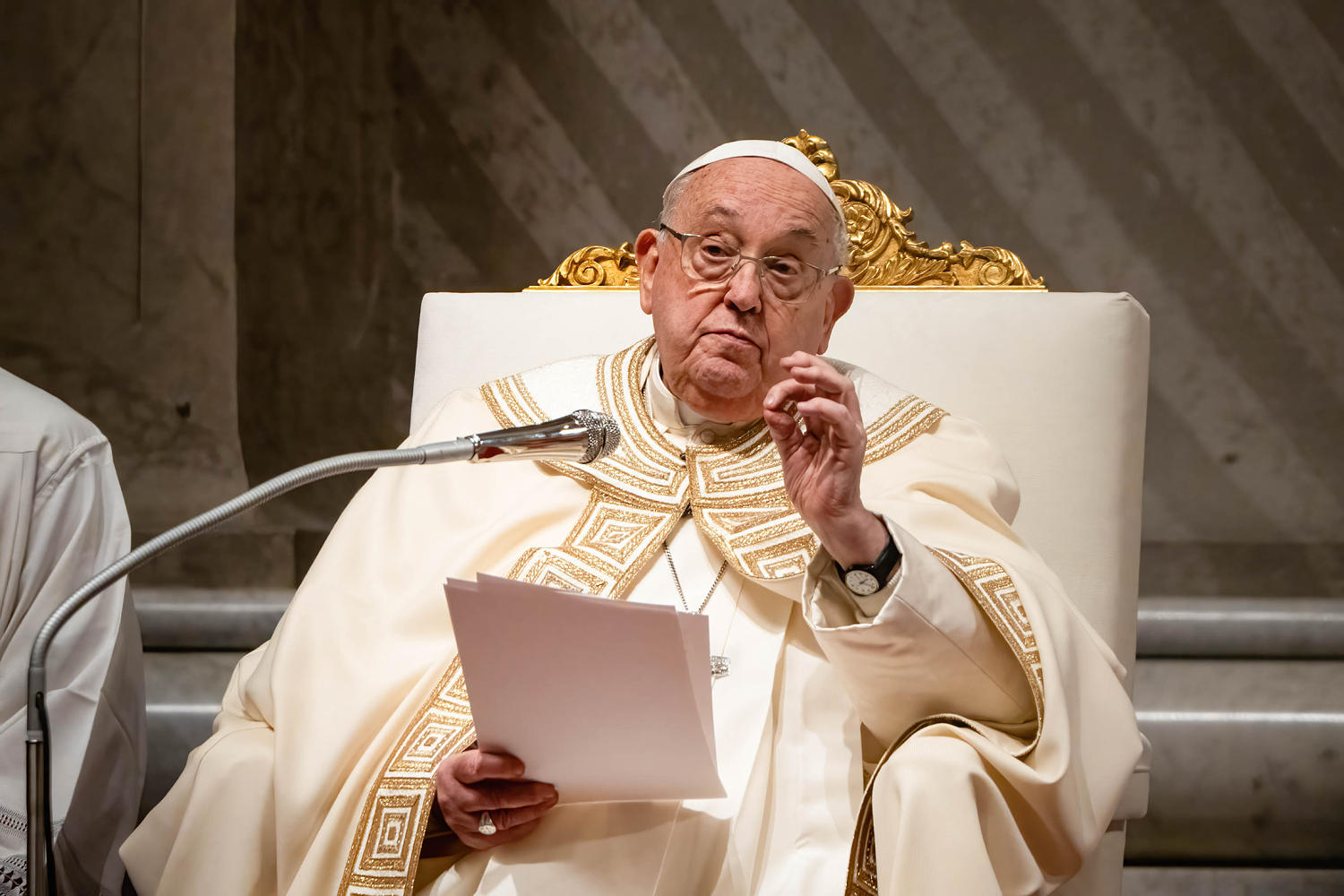Trump's dangerous theory on birthright citizenship contradicts the Founders' goals

In well over a century, nobody has seriously challenged the Supreme Court’s 1898 ruling that all persons born in the U.S. are citizens under the 14th Amendment, without regard to their parents’ immigration status.
Then came President Trump’s attempt to end birthright citizenship for the children of undocumented migrants. Two prominent law professors have taken Trump’s side, contending in a New York Times opinion essay that the president actually has a good case.
They are wrong. Trump’s executive order grievously misconstrues the 14th Amendment, and the professors’ support for it is badly misguided.
Trump’s effort has fared poorly in court. Four federal judges have issued preliminary orders against its implementation; none has upheld it.
One Republican-appointed judge called Trump’s executive order “blatantly unconstitutional” under the 14th Amendment, which provides that “All persons born or naturalized in the United States, and subject to the jurisdiction thereof, are citizens of the United States.”
Grandly titled “Protecting the Meaning and Value of American Citizenship,” Trump’s order declares that an individual born in the United States is not “subject” to American jurisdiction, and thus not a citizen, “when that person’s mother was unlawfully present in the United States and the father was not a United States citizen or lawful permanent resident at the time of said person’s birth.”
This interpretation contradicts settled constitutional law, which makes no distinctions based on the immigration status of a child’s parents.
Trump’s order initially found virtually no support among constitutional or immigration law experts, including well-known conservatives and originalists, other than from a few predictable Fox News contributors.
It was, therefore, surprising when Georgetown University’s Randy Barnett and Ilan Wurman of the University of Minnesota claimed in the New York Times that “Trump Might Have a Case on Birthright Citizenship.”
According to Barnett and Wurman, the long-accepted understanding of “subject to jurisdiction,” as set out in an 1895 Supreme Court opinion, may well be incomplete.
In U.S. v. Wong Kim Ark, the court upheld the citizenship of an American-born child of Chinese immigrants, even though his parents were ineligible for naturalization under the racist Chinese Exclusion Act.
As the court explained, the “main purpose” of the 14th Amendment’s first sentence was to “establish the citizenship” of African Americans, which had been denied by the infamous Dred Scott decision. Regarding the “subject to jurisdiction” clause, the court recognized two exceptions to citizenship by birth: the children of foreign ambassadors or diplomats and the children of “alien enemies” born during “hostile occupation.”
Such a child would be beyond the reach of domestic law — either due to diplomatic immunity or force of arms — and thus outside U.S. jurisdiction. (A third exception applied to “Indians not taxed,” who remained members of their sovereign tribes. It was rectified by the Indian Citizenship Act of 1924.)
Barnett and Wurman posit an additional exception, which, they say, could potentially validate Trump’s executive order. They argue that the jurisdiction of the United States encompasses only those who have entered, or been admitted to, a “social compact” with the United States, by exchanging “allegiance-for-protection” of the government.
Immigrants typically enter the social compact when they “come in amity,” according to Barnett and Wurman, and are thus “entitled to all the benefits of that compact, including . . . citizenship for their children.”
In contrast, those who have entered the nation unlawfully, including those singled out by Trump’s executive order, have not entered the social compact because they “did not come in amity.”
As Barnett and Wurman put it, “One cannot give allegiance and promise to be bound by the laws through an act of defiance of those laws.” Thus, under the allegiance-for-protection paradigm, “they and their children are therefore not . . . ‘subject to the jurisdiction’ of the nation in the relevant sense.”
This theory is factually erroneous, illogical and dangerous.
It is wrong to say that persons “unlawfully present,” as Trump’s order puts it, do not intend to be bound by the laws of the United States. Many such persons have overstayed valid visas, and did not actually enter the U.S. in “defiance of its laws.” Others were brought to the U.S. as children, entirely without volition.
In any case, unlawful entrants have overwhelmingly demonstrated their intentions to obey the laws and pay taxes. The many desperate refugees from lawless oppression and gang violence hope for nothing more than a peaceful life under U.S. law.
It is a made-up non-sequitur to claim that a one-time immigration violation forever negates a “promise to be bound by the laws,” thus placing migrants and their children outside the social contract.
Nor could it reflect the “original public meaning” of the 14th Amendment, when it was ratified in 1868, as claimed by Barnett and Wurman. The first significant federal immigration law was not enacted until 1882.
By its own terms, the 14th Amendment applies to “all persons” born in the United States, disqualifying no one by parentage. So even if Barnett and Wurman were right about those entering illegally, it would be illogical to impute their intentions to newborn infants who have entered the country quite legally via birth, defying no law.
Unlike the children of foreign diplomats or hostile invaders, there is neither a legal nor a physical barrier to their duty of allegiance and obedience to U.S. law.
The greatest danger of Barnett and Wurman’s theory is that it would create a perpetual underclass of individuals excluded from the social contract. That is precisely the evil the 14th Amendment’s birthright clause intended to remedy.
The premise of the Dred Scott case, per Chief Justice Roger Taney, was that Black people, whether enslaved or free, could never be members of the American “political community,” and thus had no claim to citizenship.
It took a constitutional amendment to undo the damage by, as the Supreme Court said in Wong Kim Ark, placing it “beyond doubt that all blacks, as well as whites, born . . . within the jurisdiction of the United States are citizens of the United States.”
Barnett and Wurman’s theory would recreate a similarly inferior status for the children of “unlawful entrants,” casting them permanently outside the national social contract solely by virtue of their birth. That is not merely a faulty argument; it is a pernicious one.
Steven Lubet is the Williams Memorial Professor Emeritus at the Northwestern University Pritzker School of Law.
Topics
-
Trump's birthright order to remain blocked; Pentagon to cut $50B
The Pentagon is in the cost-cutting crosshairs of Elon Musk's Department of Government Efficiency as Secretary of Defense Pete Hegseth orders officials to find $50 billion in cuts to the defense ...NBC News - 4d -

Trump 'miscalculation' may mean danger for Zelenskyy, win for Putin: Source
President Volodymyr Zelenskyy declared martial law early on Feb. 24, 2022, under Kyiv skies still tinged black by the smoke from Russian missile strikes.ABC News - 8h -

These Founders Are Reinventing Black Haircare
Banana fibers, recycling, and biodegradable collagen are just a few of the materials replacing plastic.Inc. - 4d -

Pope not out of health danger, but not 'in danger of death,' doctor says
After a week in hospital with severe respiratory issues, Pope Francis, 88, has shown some improvement but is not out danger, Sergio Alfieri, one of his doctors said in a press conference Friday.NBC News - 3d -
Irish citizenship applications from Britain hit post-Brexit peak
‘Harsh’ realities of travel and work restrictions are pushing people to seek backdoor EU access, say lawyersFinancial Times - 15h -

More than 150,000 Canadians sign petition to revoke Musk’s citizenship
Parliamentary petition launched due to billionaire’s link to Trump, who has repeatedly threatened to conquer Canada. More than 150,000 people from Canada have signed a parliamentary petition ...The Guardian - 13h -

This Founder Left OpenAI to Launch a Competitor. It Aims to Bring AI to the Masses
Mira Murati, OpenAI’s former CTO, has taken the wraps off her new company, Thinking Machines Lab. Here’s what to know about its goals.Inc. - 4d -
Startup founders are turning to 'seed-strapping' in a difficult funding environment
Seed-strapping is the "Goldilocks version" of bootstrapping and venture capital, Josh Payne of OpenSky Ventures tells CNBC.CNBC - 20h -
Ken Rosenthal, Founder of Panera Bread’s Forerunner, Dies at 81
He built a small chain of bakery cafes, with sourdough bread as its star. A few years after it was sold, it became nationally famous under a new name.The New York Times - 15h
More from The Hill
-

Live updates: Trump suggests Ukraine mineral deal is close; praises Musk 'genius' email
President Trump hosts French President Emmanuel Macron on Monday at the White House, a meeting that comes on the third anniversary of the Russian invasion of Ukraine and amid fraying ties between ...The Hill - 14m -

SEC ends investigation into Robinhood's crypto arm
The Securities and Exchange Commission (SEC) has closed its investigation into the cryptocurrency arm of Robinhood without taking action against the online brokerage, the company announced Monday. ...The Hill - 15m -

Johnson makes 'prayer request' ahead of critical vote on Trump agenda bill
Speaker Mike Johnson (R-La.) asked for prayers as he prepares to bring the House’s budget reconciliation resolution, the vehicle for President Trump’s ambitious legislative agenda, for a floor vote ...The Hill - 20m -

Nearly 200K sign petition to revoke Musk's Canadian citizenship
Thousands of individuals have signed an online petition urging the revocation of tech billionaire Elon Musk's Canadian citizenship over his involvement in the Trump administration, which the ...The Hill - 24m -

Xi says China, Russia true friends as Trump pursues Putin talks
Chinese leader Xi Jinping says China and Russia are true friends after speaking on the phone with Russian President Vladimir Putin. Xi reportedly said history and reality show the two countries are ...The Hill - 31m
More in Politics
-

Live updates: Trump suggests Ukraine mineral deal is close; praises Musk 'genius' email
President Trump hosts French President Emmanuel Macron on Monday at the White House, a meeting that comes on the third anniversary of the Russian invasion of Ukraine and amid fraying ties between ...The Hill - 14m -

SEC ends investigation into Robinhood's crypto arm
The Securities and Exchange Commission (SEC) has closed its investigation into the cryptocurrency arm of Robinhood without taking action against the online brokerage, the company announced Monday. ...The Hill - 15m -

Johnson makes 'prayer request' ahead of critical vote on Trump agenda bill
Speaker Mike Johnson (R-La.) asked for prayers as he prepares to bring the House’s budget reconciliation resolution, the vehicle for President Trump’s ambitious legislative agenda, for a floor vote ...The Hill - 20m -

Nearly 200K sign petition to revoke Musk's Canadian citizenship
Thousands of individuals have signed an online petition urging the revocation of tech billionaire Elon Musk's Canadian citizenship over his involvement in the Trump administration, which the ...The Hill - 24m -

Xi says China, Russia true friends as Trump pursues Putin talks
Chinese leader Xi Jinping says China and Russia are true friends after speaking on the phone with Russian President Vladimir Putin. Xi reportedly said history and reality show the two countries are ...The Hill - 31m